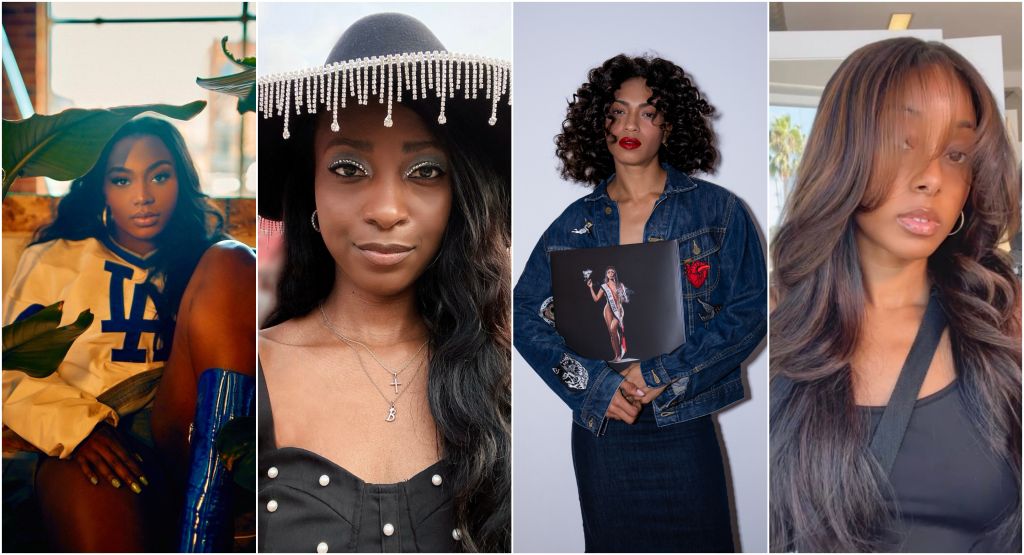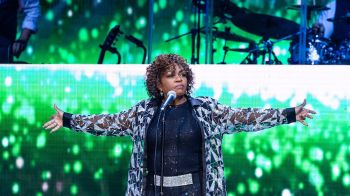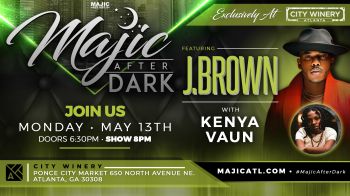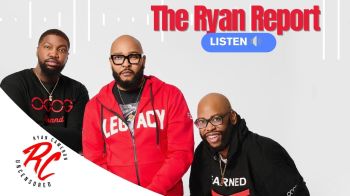
Source: collage by Joce Blake / Joce
I’ve been a Beyonce fan since the day I was born. Yes, I said what I said. There’s always been something magical about the Houston baddie. From her style to her effortless way of communicating my feelings in her songs, I have always felt connected to her.
However, something truly transformative happened when she entered this new phase, particularly around the release of Lemonade. Suddenly, her lyrics resonated with a newfound intensity. Then came Renaissance, which felt incredibly liberating. And now, with Cowboy Carter, the excitement continues to build.
The impact of Beyonce’s “Cowboy Carter”
Blue Ivy’s mama conceptualized Cowboy Carter as a mystical journey through a reimagining of Americana, specifically shining a spotlight on the often-overlooked contributions of Black pioneers to American musical and cultural history. While many have categorized it as a country album, the album seamlessly blends an array of musical genres, including pop, hip hop, trap, psychedelic funk, blues, soul, rock, rock and roll, opera and even a little “Irish” jig“. What I love most is how the album is framed as a radio broadcast by the fictional station “KNTRY Radio Texas,” with country legends Dolly Parton, Linda Martell, and Willie Nelson serving as disc jockeys. Those little pieces of history make the album even more intentional. Featuring tracks by lesser-known Black country artists like Tanner Adell, Brittney Spencer, Tiera Kennedy, Reyna Roberts, Shaboozey, and Willie Jones, the album boasts a rich musical landscape driven by acoustic instruments played by acclaimed musicians like Stevie Wonder, Paul McCartney, Nile Rodgers, Jon Batiste, Gary Clark Jr., and Rhiannon Giddens.
Beyoncé consistently gives us reasons to embrace our Blackness in ways that few other artists do. Above all, she has reclaimed numerous genres that were once taken from us, asserting her power in meaningful ways. HelloBeautiful was intrigued by this thought, so we asked four Black women how they see themselves in Beyonce’s latest album, “Cowboy Carter.”
Black Women Share How They See Themselves in Beyonce’s ‘Cowboy Carter’ was originally published on hellobeautiful.com
1. Brea Cubit – Senior Editor, Special Projects at Business Insider
 Source:Brea Cubit
Source:Brea Cubit
The journey toward self-acceptance for a lot of Black women is particularly complex. It can feel like a labyrinth. We’re born into a world that finds any reason to make us feel like we don’t belong.
Beyoncé captures this in “American Requiem” when she talks about people telling her she spoke “too country” and then telling her she wasn’t country enough. I relate to that in terms of growing up in spaces where I felt I was too much or too little: My Blackness was too much or not enough. I was too quiet, too awkward, too nice, not nice enough, too confident, not confident enough. It’s dizzying.
I’ve learned how to detach so much of my self-worth from other people’s opinions. I attribute so much of that to the love and guidance of my parents. My mom always reminded my sisters and me that only God can tell us who and what we are, and my dad always encouraged us to know our worth.
I’ve also worked on finding my center and protecting my joy. It’s an active, lifelong process. I feel like I’m in a great place now with loving myself, but of course, I go through waves where I feel deflated and discouraged. In many ways, society is more progressive, but let’s not mince words: Misogyny is still very prevalent.
That’s why I teared up when I heard the opening line of “My Rose.” “How many times have you let yourself get you down?“ is a question that’s hard to confront but an important one. The world doesn’t make self-love easy, but there’s power in recognizing your authority to reject the poison of insufficiency. You can’t get in the way of your happiness by concerning yourself with the opinions of others.“
Something that struck me in “American Requiiem“ was when Beyonce says, “Coming in peace and love, y’all / Oh, a lot of takin’ up space.“ When Black women encourage one another to take up space and not make themselves smaller, I think people sometimes misunderstand that. They think we’re trying to push others out as if refusing to dim our lights automatically threatens everyone else. That’s just not the case. So, I like that Beyonce pairs the sentiments of peace and love with taking up space. Those things are not mutually exclusive.
There’s a sequence in “Ya Ya“ that I love. Beyoncé talks about keeping her Bible on the dash as life comes at her fast, then talks about blasting folks and wanting to twerk. It’s silly and fun, but it’s also a great example of how she shows the layers and facets of Black womanhood. She’s saying, “I’ll blast you in the name of Jesus and proceed to shake it on the dance floor.“ There’s this freedom she has in being gritty, flirty, and goofy while keeping her faith, which really resonates with me. It’s giving “Church Girl.”
“Sweet Honey Buckiin‘” is another song that comes to mind. She talks about snaky haters “hissing“ and prompts us to ignore the noise and stomp on it. The imagery of bucking and stomping out whatever tries to tarnish your joy and creativity is so powerful.” “Beyoncé paints a relatively more holistic picture of what Black femininity can look like. All of the songs capture a particular emotion that comes with the experiences of Black womanhood — how we love, how we protect, how we navigate feelings of strength and weakness, how we express our joy and pain.
She calls herself a protector when talking about motherhood. She playfully calls herself a tyrant when talking about owning her body and sexuality. She describes herself as “colder than Titanic water“ when handling someone who crosses her. All of these things coexist in a beautiful, imperfect, complex way.” Cowboy Carter definitely contributes to broader conversations about how Black women navigate the world. There’s an inherent strength that comes with Black womanhood, and we see that side of Beyoncé in songs like “Protector.“ But with that comes an equally inherent vulnerability, and we see that in songs such as “Alligator Tears“ and “II Most Wanted.“ When we love, we love hard — and that love deserves to be handled with care. And if it’s not, don’t be surprised when we stand up for ourselves. Because I’ll tell you one thing: Jolene will never mess with a Black woman’s partner again.
2. Danae Simone – Singer-Songwriter
 Source:Danae Simone
Source:Danae Simone
When I listen to Cowboy Carter, specifically “My Rose,” I immediately feel emotional due to my resilience. Black women constantly have to beat the standard when, in fact, we are enough for simply just being us, flaws and all.
“I just hope you love yourself like that” broke me down because we pour into everything, and sometimes we’re left empty. The album is a testament that you can be the blueprint, the creator, and still not be invited or welcomed. Everyone in our society loves Black culture, especially Black female culture, but they don’t love us. Still, we keep creating and breaking barriers!
There are lots of hidden messages about being okay with your imperfections. Stop giving a fuck!! To be honest, I need to think more about the imagery and symbolism. It seemed super controversial, but Beyonce is very strategic about things like that. Nonetheless, she slayed.
We have to constantly be invited into spaces our ancestors created that originated from black culture. This album of Beyonce simply being an artistic creator brought out the very worst in people. Music is universal, not made for just one race, and so many people disrespected her for her craft all because they wanted to feel like they owned something! I appreciate this album so much, mostly because it opened my eyes to many other amazing Black country artists!
I love us down!
3. Briana Williams – Content Creator/ Host
 Source:Briana Williams
Source:Briana Williams
Every time I hear “American Requiem,” I get goosebumps. Amazing vocals aside, Beyonce’s question, “Can you hear me, or do you fear me?” resonates strongly with me. Unfortunately, as Black Women, we experience far too often not having our voices heard/considered/understood, so hearing these experiences belted out in song, then later making it clear that you will hear what we have to say because we belong just like everyone else, gives me goosebumps.
Instantly, when the announcement was made that Beyonce was creating a country album, there was criticism and pushback, including refusal to play her music on a predominantly country radio station. Despite meeting the qualifications of what would be perceived as country music, it was deemed “not good enough,” a feeling we, unfortunately, feel way too often. Cowboy Carter not only shines a light on blackness in country music (something that has been proven to be there for years), she incorporates blues, funk, folk, and a variety of other genres into the album, giving diversity in a space where often times, Black artists don’t get the shine they deserve. If that isn’t good enough for an Album of the Year award, I don’t know what is.
Black women are often labeled strong, resilient, and determined. Cowboy Carter’s creation due to the CMA’s unwelcoming attitude in 2016 is a perfect example of resilience. Not only did she reclaim the country’s roots in Black culture, but she also took this moment of criticism and pain and, years later, became the first Black woman to ever top the Billboard country chart. It’s such a powerful moment of taking lemons and literally turning them into Lemonade (just like she did in 2016!).
I always say it’s so fun being a fan of Beyonce because of the way it not only brings us together as a community, but breaking down and learning the different messages in her work. I immediately think of her rendition of Blackbird, a song Paul McCartney wrote in an act of solidarity for Black women during the civil rights movement. Beyonce not only covered the song, she featured four Black women in country to feature on the song with her, making “you were only waiting for this moment to arise” even more powerful.
Black women often receive pushback in the spaces that we’re able to be a part of. In the gaming space where I am, for example, Black women playing video games are still met with gatekeeping and harassment. Country music is no different. Linda Martell’s story of being in the industry, then later blackballed and pushed aside in favor of White artists was heartbreaking to learn about, but heartwarming to see how Cowboy Carter was able to shine a light with well deserved, and overdue flowers. Though society tries to shut us out of these spaces, we continue to push through, shine, and flourish.
Beyoncé, thank you for continuing to create and shine. We held a listening party when the album released, and the way your work continues to bring us together as a community is unmatched. With that being said, the visuals. Please. We can only use our imagination for so long!
4. Janei White – CEO of Ienaj Magazine
 Source:Janei White
Source:Janei White
As a Black woman who has had to navigate and challenge stereotypes myself, Beyoncé’s portrayal of Black womanhood in Cowboy Carter
deeply resonates with my own experiences and identity. Her exploration of strength, resilience, and self-expression reflects the journey I have embarked on in breaking down stereotypes and embracing my authentic self. The album’s emphasis on self-love and empowerment serves as a powerful reminder of the importance of owning one’s narrative and defying societal expectations. Beyoncé’s ability to expand the representation of Black women in various genres, including country music, inspires me to continue breaking barriers and redefining what it means to be a Black woman in today’s society. Cowboy Carter challenges societal perceptions of Black women by defying stereotypes and expanding the genre’s boundaries. Beyonce’s music showcases the diversity and complexity of Black women’s experiences, highlighting our strength, resilience, and vulnerability. The album challenges the notion that country music is solely for white artists, proving that Black women can excel in any genre they choose. By embracing country music, Beyoncé disrupts traditional expectations and promotes inclusivity in a genre that has historically marginalized Black artists.
In the Cowboy Carter album, specific themes and messages empower and represent Black womanhood through resilience, self-expression, and cultural pride. The album explores the struggles and triumphs of Black women, celebrating strength and perseverance. It embraces the power of self-love and self-acceptance, encouraging Black women to embrace their authentic selves unapologetically. The album also highlights the importance of community and solidarity, emphasizing the bonds and support among Black women.
Beyoncé uses imagery, symbolism, and storytelling to convey her message about Black femininity. Through visuals and metaphors, she draws connections between the cowboy archetype and Black womanhood. The imagery and symbolism in the album serve as powerful tools to challenge societal norms and stereotypes, empowering us to reclaim our narratives and redefine notions of femininity.
Cowboy Carter significantly contributes to broader conversations about race, gender, and identity, particularly from the perspective of Black women. The album challenges the limited narratives and stereotypes surrounding Black women, portraying their experiences. By incorporating elements of country music, a genre historically associated with white artists, Beyoncé disrupts expectations and expands the representation of Black women in diverse musical spaces. The album’s exploration of themes like self-love, empowerment, and cultural pride resonates with Black women worldwide, fostering a sense of solidarity and inspiring conversations about the intersections of race and identity.
In Cowboy Carter, I see myself in the celebration of Black womanhood and the validation of my experiences. It echoes my own journey of self-acceptance and embracing my unique identity. Additionally, the emphasis on community and sisterhood resonates with me, as it highlights the importance of uplifting and supporting one another as Black women in a world that often tries to diminish our voices and experiences.







